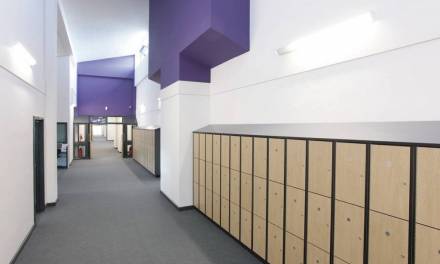School can be a challenging time for many students. However, this doesn’t mean they can exhibit poor behaviour as it can negatively impact their environment and peers. We therefore must instil expectations and guidelines for students to follow, but what if they do not conform to these standards?
To help overcome these challenges, we’ve compiled five tips you can implement in your setting to improve student behaviour and ensure all learners reach their potential.
1. Establish clear expectations and routines
From the first day of school, set clear expectations for behaviour and establish consistent routines. Students thrive when they know what is expected of them. Clearly outline classroom rules, consequences for misbehaviour, and rewards for positive actions. Consistent routines help create a sense of predictability and security, allowing students to focus on learning instead of worrying about what comes next.
2. Build positive relationships with students
Building positive relationships with your students is crucial for creating a supportive and respectful classroom environment. Get to know your students individually, show interest in their lives, and actively listen to their concerns. When students feel valued and understood, they are more likely to respond positively to your guidance and instruction.
3. Create engaging lessons
Boredom is a common trigger for misbehaviour. To keep students on track, design lessons that are interesting, relevant, and interactive. Incorporate a variety of activities, such as group work, discussions, and hands-on projects, to cater to different learning styles. When students are actively engaged in the learning process, they are less likely to act out.
4. Use positive reinforcement
Rewarding positive behaviour is a powerful motivator. Instead of focusing solely on punishing misbehaviour, make an effort to recognise and praise students when they follow the rules, show kindness to others, or put effort into their work. Positive reinforcement can create a positive classroom culture and encourage students to continue their good behaviour.
5. Try a DfE-accredited online alternative provider
Ultimately, not every child will abide by certain rules and address their behaviour so it may result in drastic measures being taken. A DfE-accredited online alternative provider, such as EDClass Ltd can allow students to learn in a setting they feel comfortable in. They can also then refocus their attention to their studies rather than getting distracted from their peers. If this is combined with one-to-one support from UK-qualified teachers, then trust, rapport and meaningful relationships can be formed to ensure a student is on track.
Try it out for free
“It is important that during a suspension, pupils still receive their education. Headteachers should take steps to ensure that work is set and marked for pupils during the first five school days of a suspension. This can include utilising any online pathways…”
EDClass Ltd can help ease the burden of challenging behaviour in schools and alleviate pressure. EDClass’s UK-qualified teachers provide effective pastoral support to form real and true relationships with students so they can thrive.
The platform even includes behaviour lesson modules and independent pathways that accommodate the learning styles, abilities and behaviour of learners.
“Another significant strength of EDClass is the provision of carefully considered individualised schemes of work. Known as ‘learning pathways’, these take account of, and build on, the curriculum each pupil was following in their registered school prior to joining EDClass. This includes any specific exam syllabuses. As a result, when pupils return to mainstream education, they are well prepared to reintegrate into lessons.”
If you would like to learn more about EDClass over a free online demonstration call 01909 568338, send an email to mail@edclass.com or book directly here.









